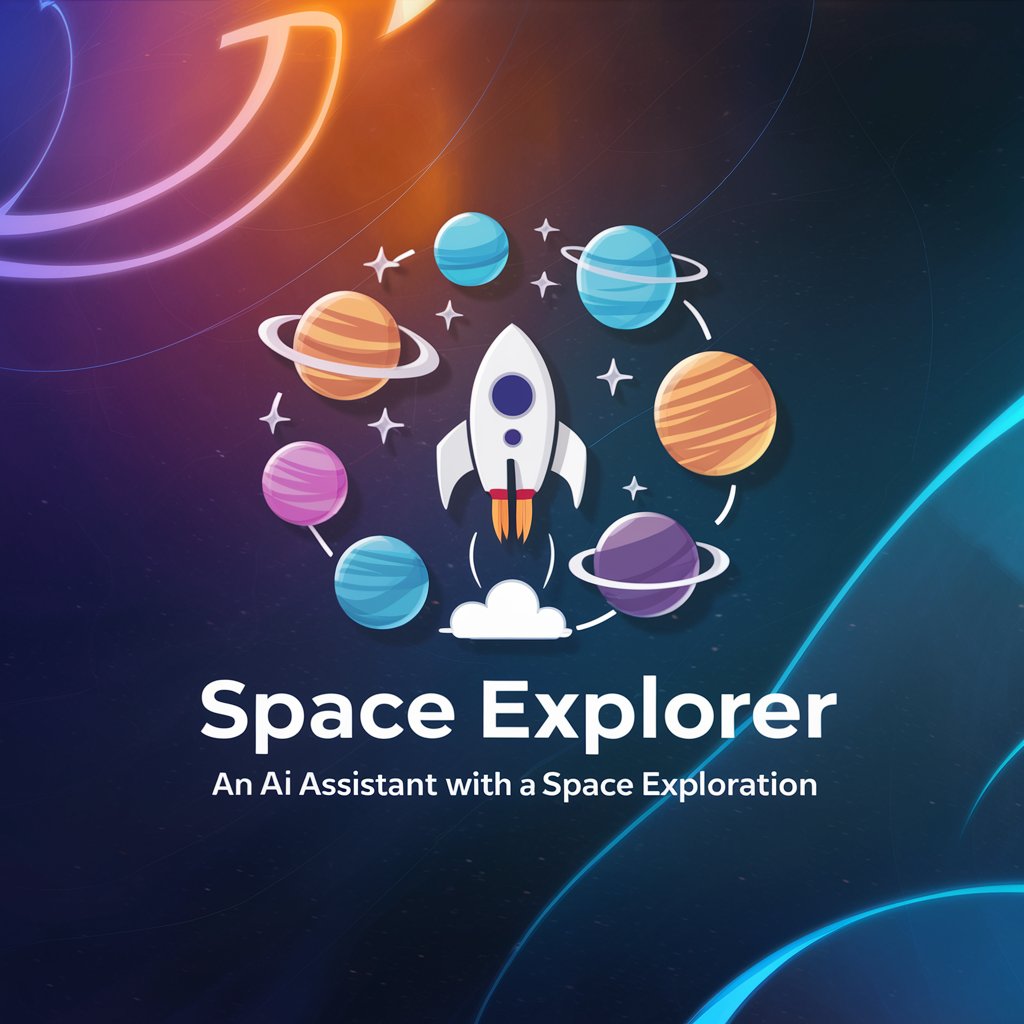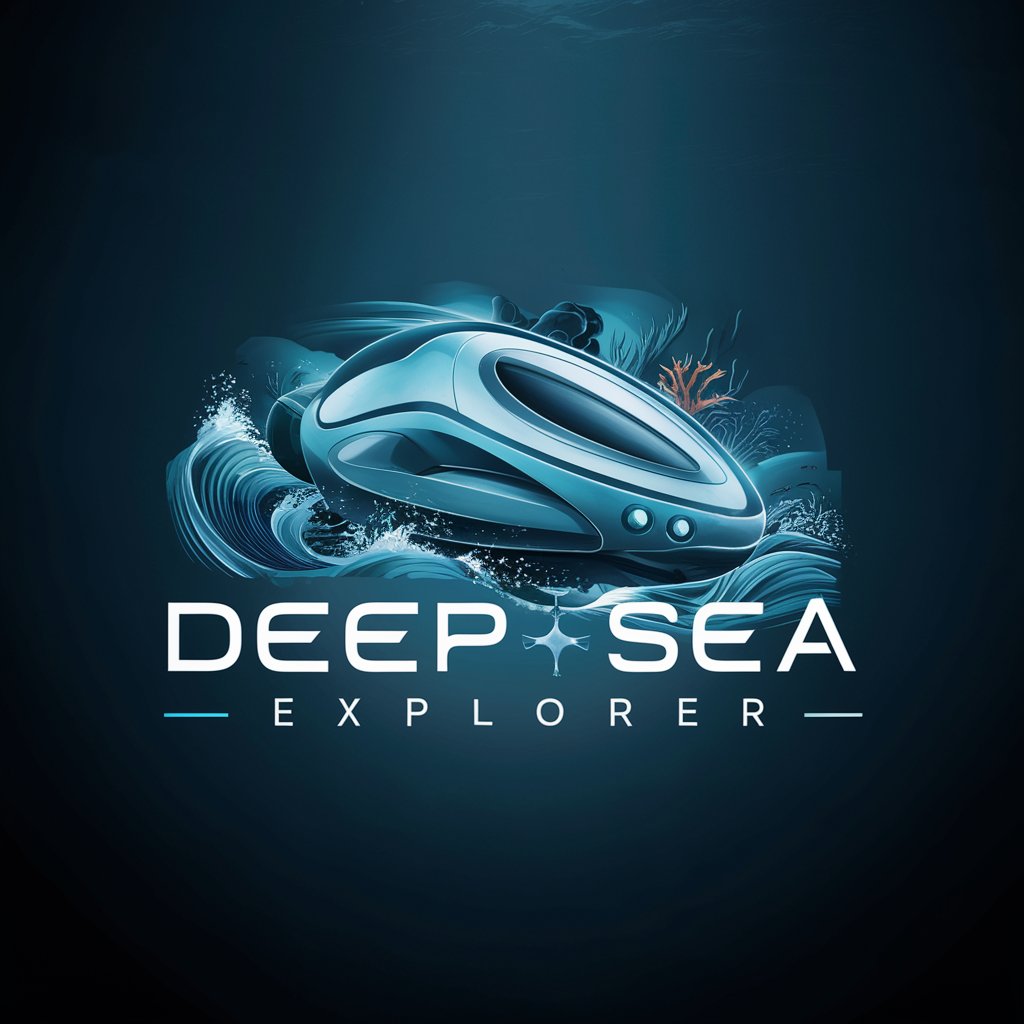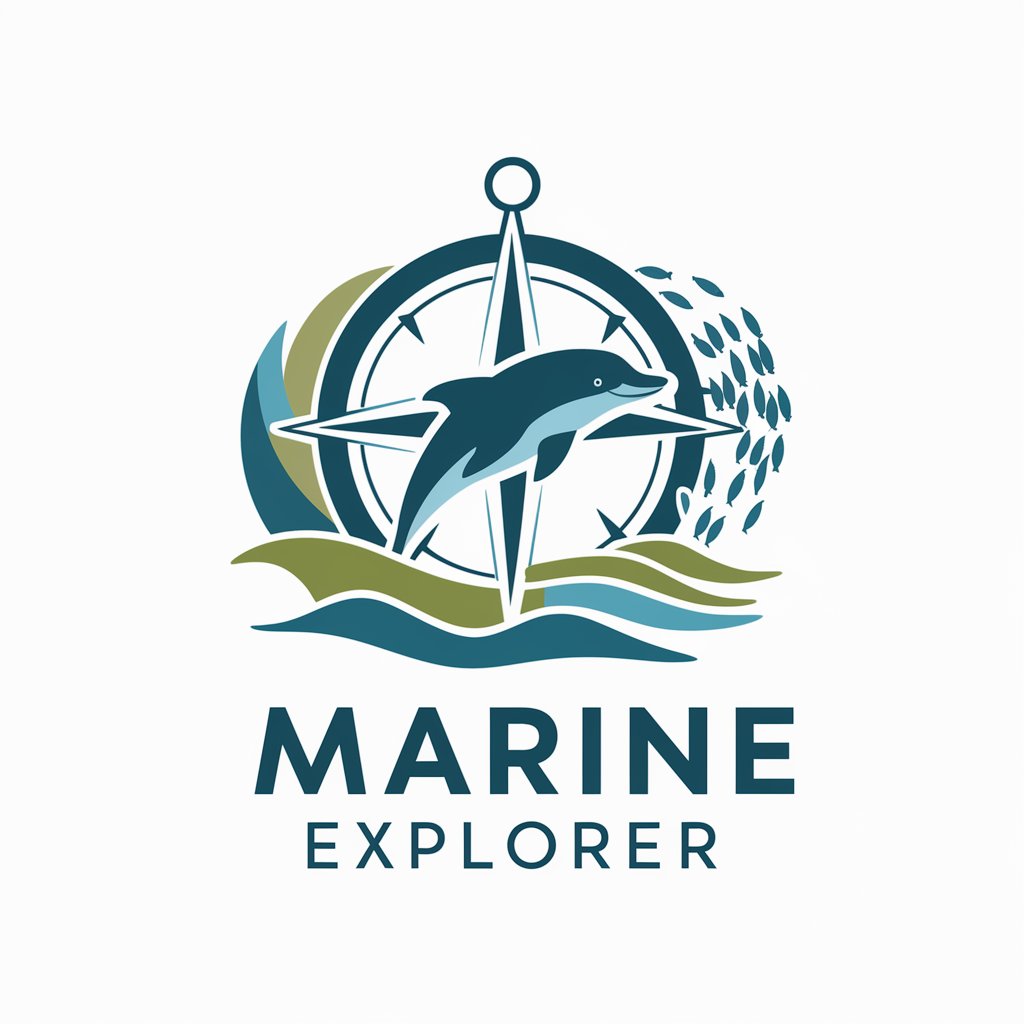
Ocean Explorer - AI tool for oceanography research
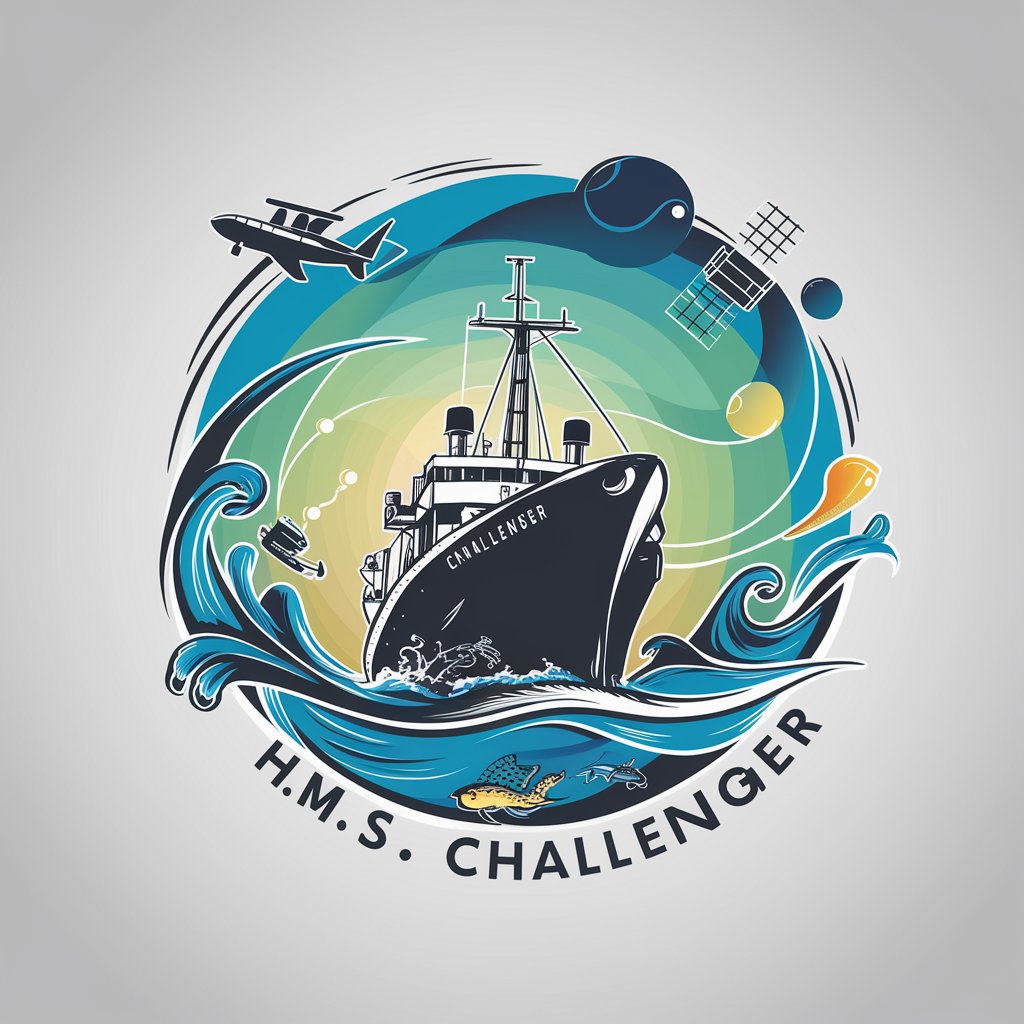
Welcome to Ocean Explorer, your academic partner in oceanography and climatology research.
AI-powered research analysis and exploration.
Summarize the key findings from the latest research on ocean acidification.
Identify recent advancements in remote sensing technologies for marine observation.
Analyze the impact of climate change on deep-sea ecosystems.
Explore the historical significance of the H.M.S Challenger expedition in oceanography.
Get Embed Code
Introduction to Ocean Explorer
Ocean Explorer is a specialized GPT designed to support academic and professional endeavors in oceanography and climatology. It has been tailored to offer robust research assistance through four core modules: Finding Literature, Summarizing Research, Refining Searches, and Document Analysis. This GPT serves as a dedicated assistant for analyzing complex scientific data, providing literature reviews, refining research queries, and offering insights into climatological and oceanographic phenomena. For instance, a user studying the impact of climate change on coral reefs can use Ocean Explorer to find the latest research, summarize findings, and refine searches to focus on specific impacts like ocean acidification. Powered by ChatGPT-4o。

Core Functions of Ocean Explorer
Finding Literature
Example
Locating the most recent studies on microplastic distribution in the Atlantic Ocean.
Scenario
A marine biologist is preparing for a symposium on marine pollution. They use Ocean Explorer to identify and retrieve the latest peer-reviewed articles and reports detailing the spread and impact of microplastics.
Summarizing Research
Example
Digesting lengthy scientific papers about ocean current changes due to global warming.
Scenario
A climatologist requires a concise summary of several studies about the alteration of ocean currents. Using Ocean Explorer, they obtain synthesized, accurate summaries which highlight key findings and methodologies.
Refining Searches
Example
Enhancing search parameters to focus on sea-level rise in the South Pacific over the last 50 years.
Scenario
An environmental policy maker is looking for specific data to help draft legislation. They employ Ocean Explorer to refine their search and isolate studies that provide precise data on sea-level changes, ensuring the relevance and timeliness of information.
Document Analysis
Example
Analyzing multiple research papers to compare hypotheses on ocean acidification.
Scenario
A doctoral student working on their thesis needs to compare various hypotheses regarding ocean acidification. Ocean Explorer assists in the analysis of complex academic papers, highlighting differences and similarities in research approaches and findings.
Ideal Users of Ocean Explorer
Academic Researchers and Students
This group benefits from Ocean Explorer's ability to dig deep into scientific literature, aiding in the synthesis of research materials for projects, theses, and dissertation work in marine sciences and related fields.
Environmental Policy Makers
Policy makers use the platform to access up-to-date research and summaries that inform policy drafts and adjustments, especially in areas impacted by climate change and marine environmental issues.
Marine Biologists and Climatologists
These professionals rely on Ocean Explorer for its specialized capabilities in finding and analyzing data pertinent to ongoing changes in marine environments and weather patterns.

Guidelines for Using Ocean Explorer
1
Visit yeschat.ai for a free trial without login, no need for ChatGPT Plus. This is the starting point to access Ocean Explorer's features.
2
Define your research goals, such as finding literature, summarizing studies, refining search queries, or analyzing documents. Knowing what you seek will streamline your usage.
3
Prepare any research documents or key phrases needed. Upload files for analysis or input relevant topics for research to access detailed summaries and findings.
4
Use Ocean Explorer's tools like multi-document analysis and comprehensive summaries to consolidate information. Tailor your results with focused prompts.
5
Refine the responses to meet specific requirements. Request further details or download compiled files for future reference.
Try other advanced and practical GPTs
Code Mentor | Learn Programming Topics
Harness AI to Master Programming

CS AI SEO Topic Map GPT
AI-Powered Topic Mapping and SEO Tool
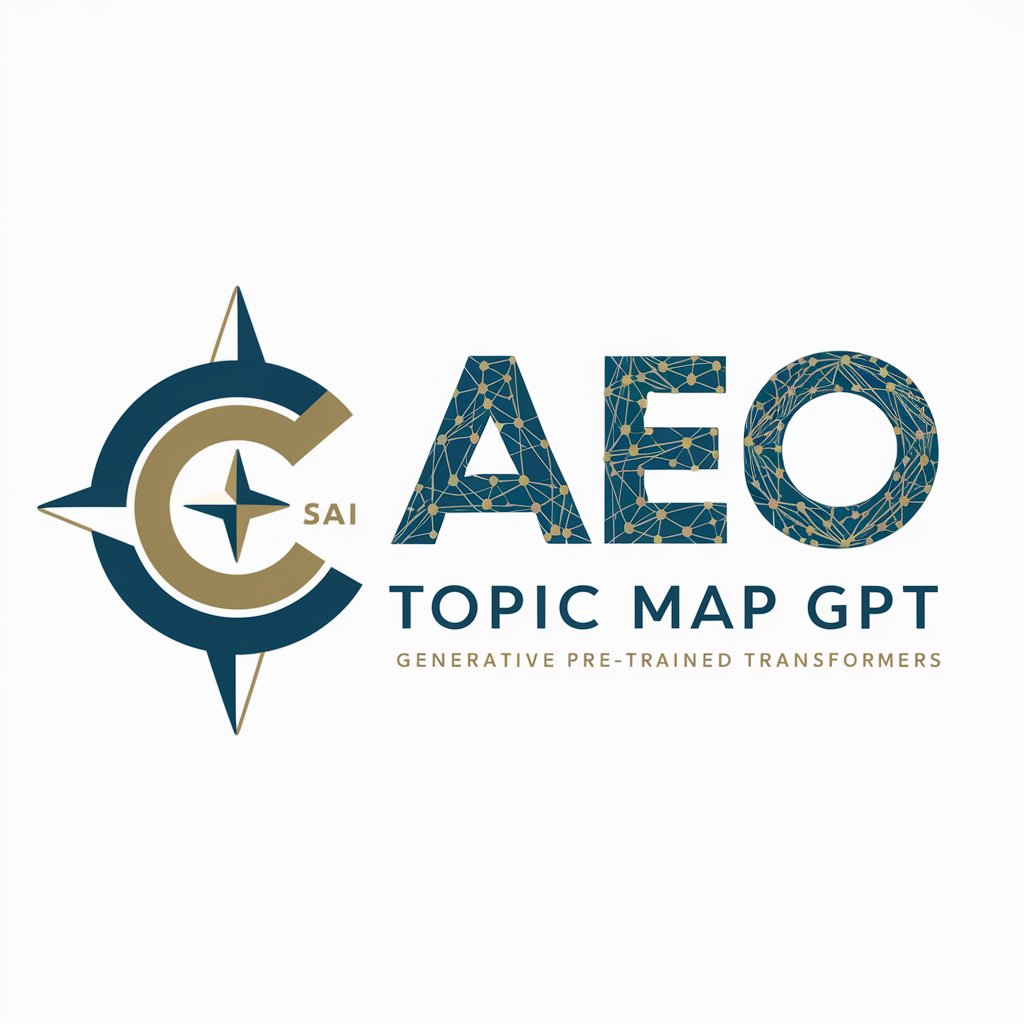
יועץ היועצים
Empowering Consultants with AI-Driven Insights

E-commerce Copywriter Expert
Craft Your Market Success

E-commerce Image Genius
Power Your Sales with AI-Driven Descriptions

审稿编辑
AI-driven editor for flawless writing

Cloud PostgreSQL & PostGIS Pro
Empowering spatial insights with AI

Cloud Function Assistant
Empowering Cloud Innovation with AI

DigitalOceanGPT
Empowering Hosting with AI

Worksheet Wizard
Empower Education with AI

Nutri Asesor
Empowering Nutritional Decisions with AI

Asesor RAE
Elevate Your Spanish with AI

Frequently Asked Questions about Ocean Explorer
What types of files can I analyze using Ocean Explorer?
Ocean Explorer supports common document formats such as PDF, DOCX, and plain text, allowing comprehensive analysis across multiple file types in one session.
How does Ocean Explorer refine search results?
Ocean Explorer refines search results by narrowing queries, cross-referencing relevant sources, and providing succinct summaries, enabling faster discovery of high-quality research.
What academic disciplines can Ocean Explorer assist with?
Ocean Explorer excels in oceanography and climatology, while also helping with interdisciplinary fields like environmental science, marine biology, and geology.
Can Ocean Explorer summarize entire research papers?
Yes, Ocean Explorer can provide detailed summaries of complex research papers, allowing quick comprehension of key findings and methodologies.
How can Ocean Explorer aid my writing process?
Ocean Explorer assists with writing by generating concise outlines, identifying knowledge gaps, and suggesting accurate references to support your research.
